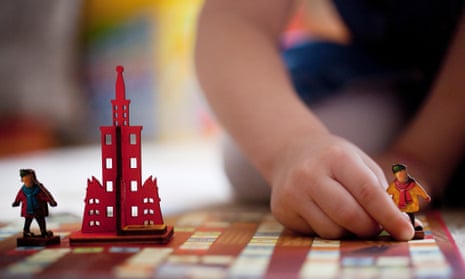Like most families, the one I grew up in is dysfunctional. Take the relationship I have with my brother: our shared history is one of lies, deceit and broken promises. Time and time again, we have exploited each other’s weaknesses in the way only siblings know how. Even the brief periods of uneasy peace have ended with terrible acts of betrayal, often committed against our own father. And yet, this Christmas, we will once again sit down to play Risk.
This turn-based board game is a long way from the MB Games image of children sporting bowl haircuts and corduroy gathered around a knackered donkey.
Risk is played on a global map that has been carved up into territories. Players roll dice to determine the outcome of skirmishes, the ultimate goal being world domination.
But Risk is about much more than pushing little plastic men around a map. The real action happens around the table, rather than on the board, as players practice diplomacy, make and break alliances, develop vendettas and pull off hustles. In other words, it’s great practice for family life.
As, indeed, are most board games. They teach useful lessons about taking turns and handling defeat. They provide an outlet for tension and rivalry. They require family members to sit down and interact with each other – increasingly important in a world where we spend much of our time in separate rooms, triple-screening and arguing over Skype about whose turn it is to change the toilet roll. But perhaps best of all, they remind us how to play.
This is a skill that gets neglected in many households (including my own) because there’s just so much other stuff to do. Playing games can feel like a waste of time when there’s still laundry to be washed, dinner to be cooked and, let’s be honest, that hilarious Beach Boys shred someone just posted on Facebook to check out.
Often, though, it’s not just about time. After a hectic day of work and childcare, I don’t have enough brainpower to come up with funny names for all 78 Playmobil pirates. I can barely muster the creative energy to construct a cheese sandwich, let alone a Lego dinosaur palace complete with conservatory and helipad.
Once again, this is where board games can help. Or in my case, as the mum of a three-year-old, the kind of card games that come in primary coloured boxes and have straightforward names like Monster Bingo and Post Box Game.
The big favourite in our house is Greedy Gorilla. It’s supposed to teach kids about opting for balanced meals instead of junk food. My son couldn’t give a monkey’s about all that, but he thinks the way the gorilla burps when you post the cards through his mouth is the funniest thing he’s ever seen.
My own sense of humour is more sophisticated, hence I can easily spend half an hour watching that Beach Boys video on repeat. But I like Greedy Gorilla because it provides a framework for play. When I’m exhausted and out of ideas, it’s great to have a structured activity to turn to. And on the really bad days, the fact it involves sitting down is a huge bonus.
Playing Greedy Gorilla doesn’t just teach my son useful skills like matching shapes and waiting his turn. It flexes my own mental muscles, reminding me how important playful family interaction is and how much fun it can be. Sometimes I don’t even mind letting him win.
I look forward to playing other games with him as he gets older, perhaps ones that don’t involve so much belching. His new sibling is arriving in February and I hope they will grow up enjoying board games as part of their shared childhood, using them to learn about the world and each other. And only occasionally smashing each other over the head with the Monopoly bank.
As for my brother and I, we’ll be playing Risk Legacy this Christmas. It’s a modern reimagining of the original, involving complex campaigns and rules that evolve as you play. I’m sure it’ll be the same old story, though - he’ll construct an elaborate ruse, swearing he can be trusted this time, after 30 years of treachery. My dad will fall for it, my brother will win and I’ll be furious with the pair of them.
The ensuing enmity will hang around like the smell of a primate’s burp for the rest of Boxing Day. I can’t wait.
